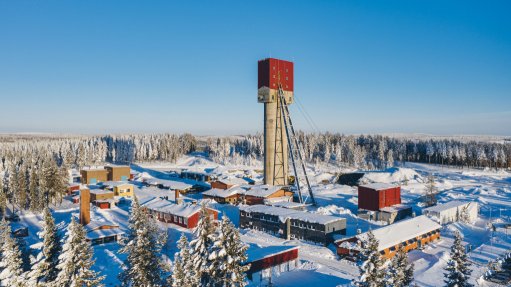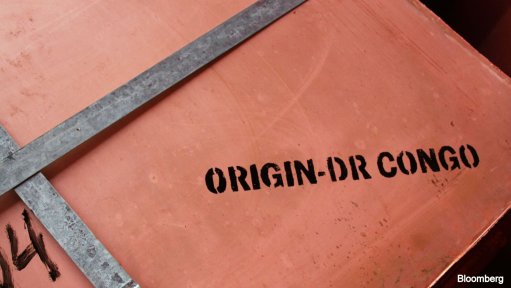New report punts 'green' WA
PERTH (miningweekly.com) – A new report has found that the Western Australian government could add a further A$16-billion to the state’s economy and deliver an additional 55 000 jobs by creating a more sustainable, or ‘green’, state.
The report by the Bankwest Curtin Economic Center suggested that diversifying into more sustainable industries such as renewable power generation, lithium mining and processing would create a pathway to greater economic value and better employment opportunities for the state, particularly in regional Western Australia.
“The Covid-19 pandemic has had a significant impact on the Western Australian economy, which will be felt for years to come. It is essential to balance future economic growth with achievable targets to reduce the state’s environmental footprint,” said report co-author and Bankwest Curtin Economics Center director Professor Alan Duncan.
“By doing this, 55 000 additional jobs could be created across industries such as specialised grain and livestock farming and the expansion of scientific services, 49 000 of which would be based in regional Western Australia, while also boosting the state’s economy by an estimated A$16-billion.”
The report identified air pollution, land use, water security and waste management as some of the biggest challenges currently facing the state.
“The pollution of our air, growing water scarcity and the increasing amount of waste has accelerated the loss of biodiversity. For example, Australia’s per capita air pollution emissions are the highest in the OECD and sixth highest in the world, only surpassed by Qatar, Kuwait, the United Arab Emirates, Bahrain and Saudi Arabia,” Duncan said.
“There is a critical need to address and take action on global warming by significantly reducing greenhouse gas emissions generated by both industries and households.
“Western Australia’s mining sector is responsible for 40% of the state’s emissions and while greenhouse gas emissions have been falling nationally, they have risen significantly in Western Australia, growing by 12% in the last five years.”
Report co-author and Bankwest Curtin Economics Centre research fellow Dr Silvia Salazar said Western Australia has the lowest proportion of renewable electricity generation of any state at only 8.9%.
“Western Australia is one of only two states without a renewable energy target. Introducing a bold but achievable target, backed by strong policies will help drive greater investment in renewable energy in Western Australia and reduce our emissions, especially across local industries,” Salazar said.
“The development of smarter buildings, more efficient industries and better use of resources will help to reduce energy use and Western Australia’s greenhouse footprint, while also saving households money.
“Our report estimates that simple measures such as double glazing, integrated window shading, and decreasing air leakage can save households $681/y in energy bills, or around A$34 000 over 50 years.”
Salazar explained that water security and waste management remain a significant challenge for Western Australia, but the state needs to make smarter decisions to ensure the state enjoys a sustainable and successful future.
“Our report found there is an increasing threat to water security faced by Western Australia, particularly in the South West, but despite the scarcity, households continue to use 26% more water than the average Australian household, while state industries use five times as much as households,” Salazar said.
“Western Australia can do a lot more to reduce our energy, water and waste consumption. Adopting a circular economy where most of our resources are recycled and reused, and implementing simple things like making sure all households have access to an organic waste bin, will mean that we can get the most out of the goods we use and at the same time protect and look after our environment.”
Comments
Press Office
Announcements
What's On
Subscribe to improve your user experience...
Option 1 (equivalent of R125 a month):
Receive a weekly copy of Creamer Media's Engineering News & Mining Weekly magazine
(print copy for those in South Africa and e-magazine for those outside of South Africa)
Receive daily email newsletters
Access to full search results
Access archive of magazine back copies
Access to Projects in Progress
Access to ONE Research Report of your choice in PDF format
Option 2 (equivalent of R375 a month):
All benefits from Option 1
PLUS
Access to Creamer Media's Research Channel Africa for ALL Research Reports, in PDF format, on various industrial and mining sectors
including Electricity; Water; Energy Transition; Hydrogen; Roads, Rail and Ports; Coal; Gold; Platinum; Battery Metals; etc.
Already a subscriber?
Forgotten your password?
Receive weekly copy of Creamer Media's Engineering News & Mining Weekly magazine (print copy for those in South Africa and e-magazine for those outside of South Africa)
➕
Recieve daily email newsletters
➕
Access to full search results
➕
Access archive of magazine back copies
➕
Access to Projects in Progress
➕
Access to ONE Research Report of your choice in PDF format
RESEARCH CHANNEL AFRICA
R4500 (equivalent of R375 a month)
SUBSCRIBEAll benefits from Option 1
➕
Access to Creamer Media's Research Channel Africa for ALL Research Reports on various industrial and mining sectors, in PDF format, including on:
Electricity
➕
Water
➕
Energy Transition
➕
Hydrogen
➕
Roads, Rail and Ports
➕
Coal
➕
Gold
➕
Platinum
➕
Battery Metals
➕
etc.
Receive all benefits from Option 1 or Option 2 delivered to numerous people at your company
➕
Multiple User names and Passwords for simultaneous log-ins
➕
Intranet integration access to all in your organisation


















